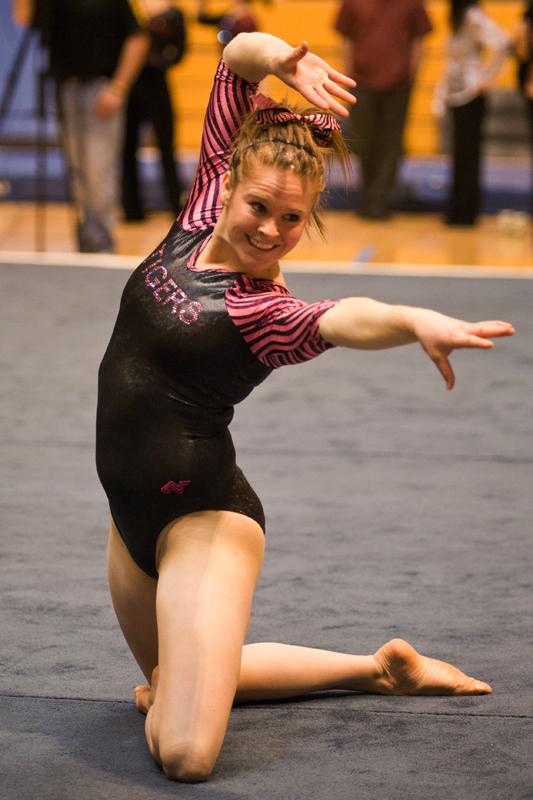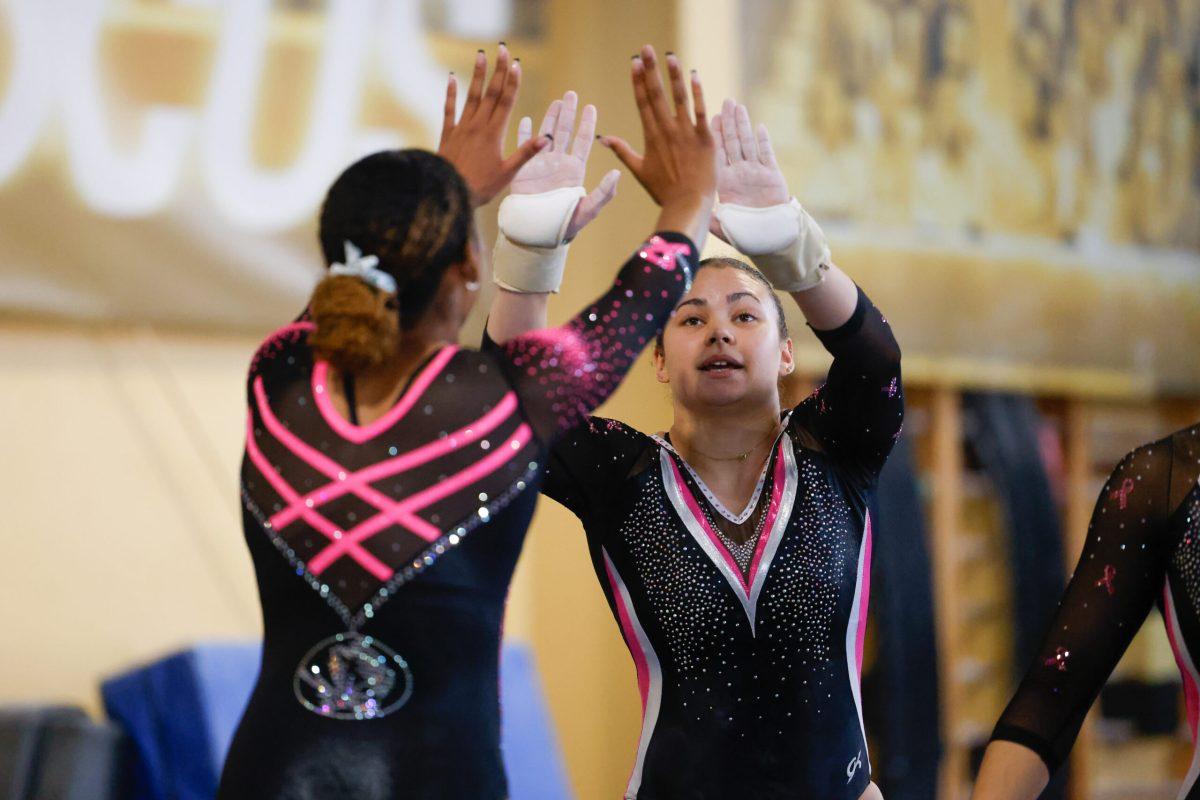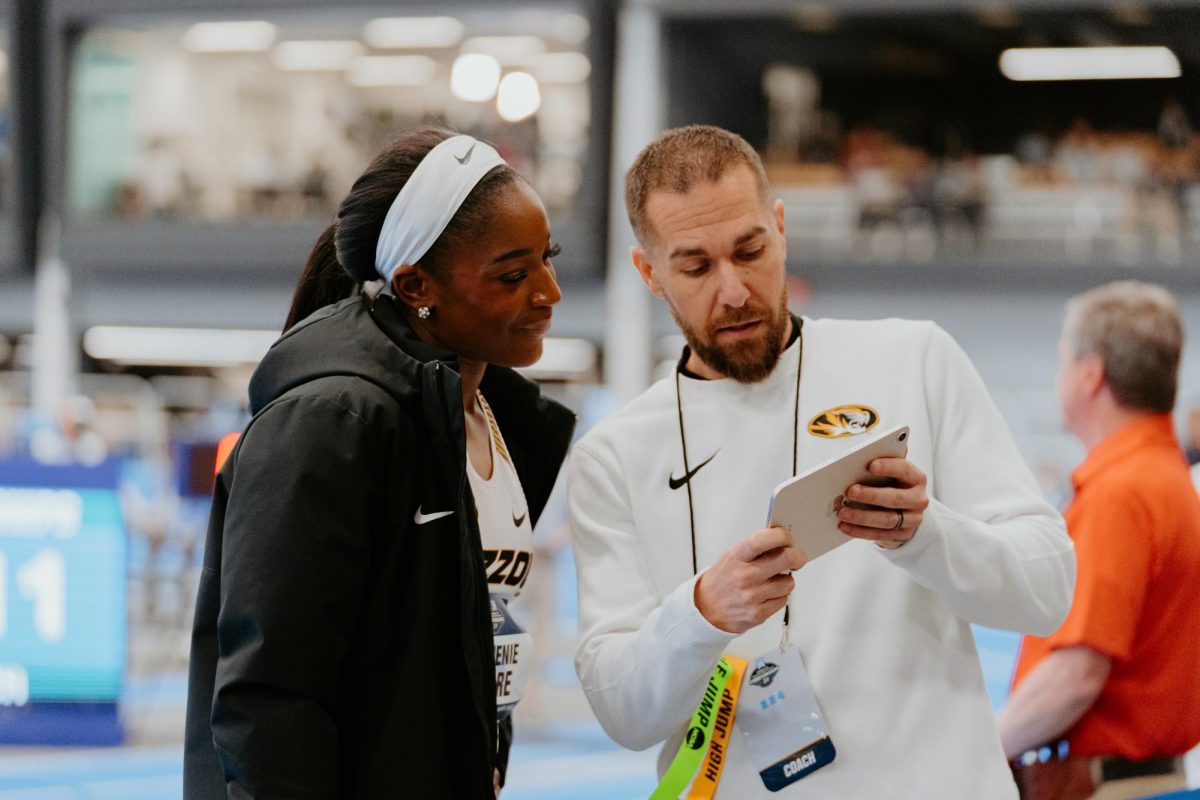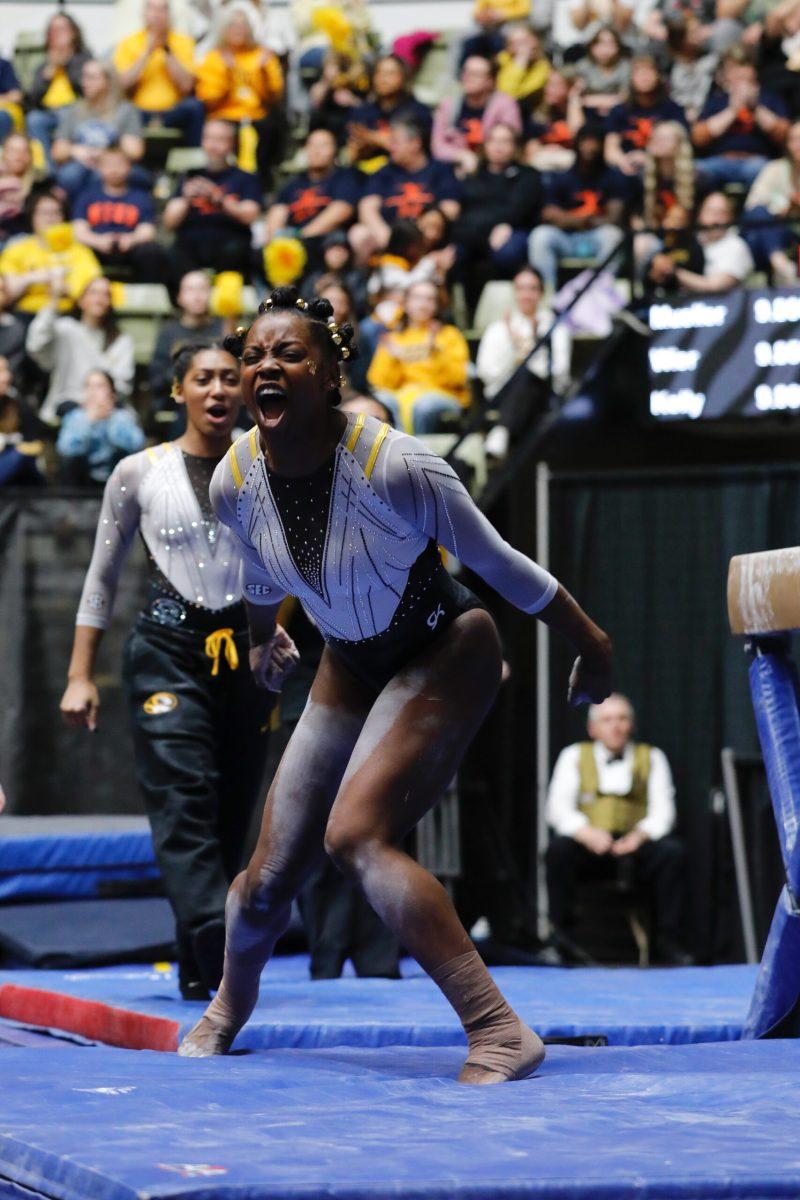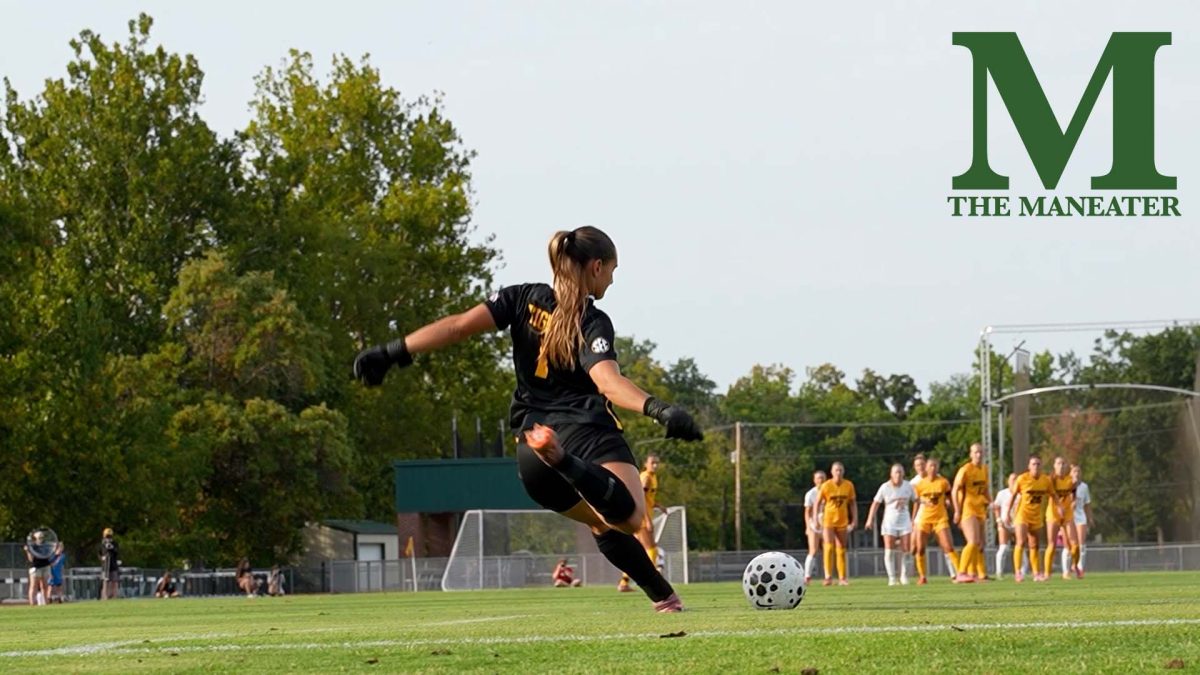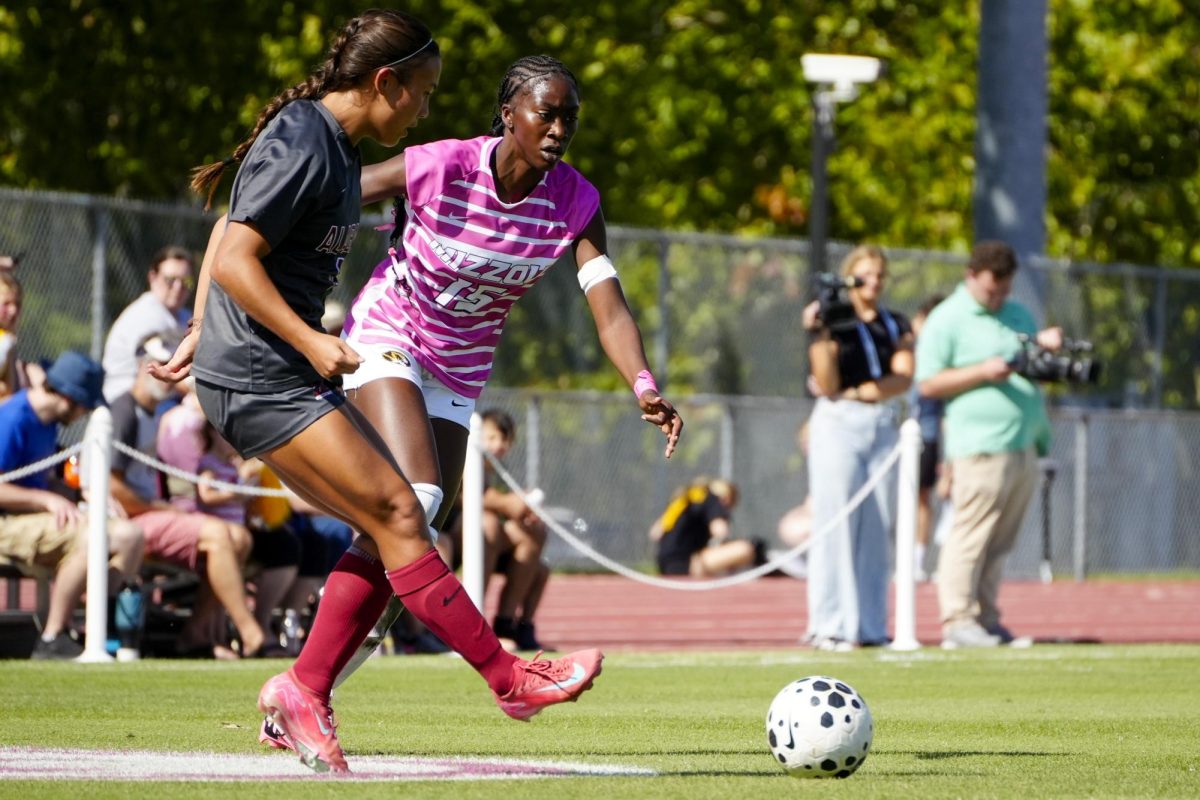When the Missouri gymnastics team heads to Fayetteville, Ark., on Saturday, it will find itself in a very familiar position.
Missouri, currently ranked No. 19 nationally, will be participating in its 11th straight NCAA Regional competition. The Tigers can advance to the national championship by finishing first or second in the competition. The last time the team did that was when it hosted and won the Columbia Regional in 2010.
Individual athletes can also advance if they win an event or take one of the top two spots not by members of an advancing team in the all-around competition.
Coach Rob Drass’ squad enters the meet, hosted by Arkansas, coming off a tie for second in the Big 12 Conference championship with a score of 196.025.
“The last few meets we’ve had with really big crowds, I think it really helps us because I think we can take the other team’s cheering and just act like it’s our cheering,” freshman Rachel Updike said. “It gives us a lot of motivation and energy.”
Missouri will match up against familiar faces on Saturday. The Tigers have already faced three of their five opponents: Boise State, UCLA and Arkansas.
“We’ve seen all of these teams before, and we’ve done well against them, so it does boost our confidence…we’re just ready to show them what we can do,” senior Mary Burke said.
As has been the case the entire season, the Tigers’ rotations will be headlined by the duo of Burke and Updike.
Burke was named All-Big 12 this season on bars and all-around and won Big 12 Gymnast of the Week three times. This competition will be Burke’s fourth as a member of the team, and she hopes to use her experience to both her and the team’s advantage.
“Being a senior, I know what to expect going into the meets,” she said. “Anything I can do to help out the other girls, tell them my experiences, tell them what to look for, what to expect, is really going to help our team.”
Updike has emerged as a phenom for the Tigers this season, winning Big 12 Newcomer of the Year and scoring an All-Big 12 spot on the floor and vault.
The one piece lacking from Updike’s repertoire most of the season was a bars routine, which would qualify her for all-around. She recently added that discipline, though, and finished second — above Burke — at the conference championships with a 39.400 all-around score.
Drass said performance in no way guaranteed that Updike would compete on bars, and therefore all-around, at the regional. At Tuesday’s practice, Updike mentioned an inter-squad competition on bars that would help determine the lineup and possibly result in someone taking her place.
“If someone knocks something out or if Rachel were to struggle, that’s always a possibility,” Drass said. “That’s why we do the inter-squads (in practice), it’s a chance for eight or 10 (gymnasts) to compete for the six or seven spots that we have available.”
The Tigers’ performance as a team will still depend massively on how Burke and Updike perform, but much of the team’s late-season success was due to its depth and ability to receive strong performances up and down the lineup.
One place in their rotations that has been especially important for Missouri has been the leadoff athlete in each rotation. That spot has been occupied by younger, less heralded Tigers, but it has still yielded very strong routines from freshman and Laura Kappler on beam and sophomores Mackenzie McGill and Taylor Medrea on bars and floor.
“The leadoff person kind of sets the tone and the benchmark, because the perception is in women’s gymnastics is that the leadoff routine is the weakest,” Drass said. “You can springboard and you can take energy and momentum and use it and run with it.”
Other athletes with potential to give Missouri huge scores are sophomore Katelyn Trevino, who won the individual floor title at the conference championship with a 9.9, and freshman Kelsy Landreth, who knocked out a 9.925 vault performance in a meet Feb. 17 against Oklahoma.
They have shown that strong performances can come from all over the roster, and to move on to nationals, the Tigers will have to focus every bit of strength into their performance in Fayetteville.
“The difference in us having our best performance and not is the other athletes, it’s someone else who is not a big name (like Updike or Burke) stepping up,” Drass said.
That has happened many times before for this season, and for Missouri to advance, it’s going to have to happen again.


